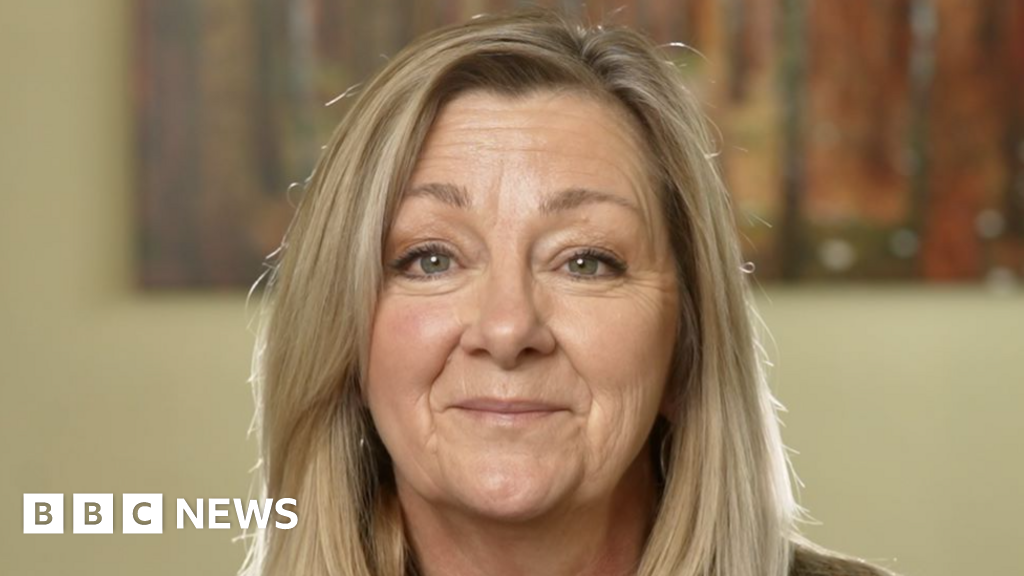Woman with anal cancer urges people to talk about their bottoms

- By Rachael McMenemy & Leigh Milner
- BBC News, Essex
Image source, Jamie Niblock/BBC
A mother-of-four who had never heard of anal cancer before her diagnosis said she wanted people to feel comfortable talking about their bottoms.
Caroline Hyde, 53, of Clacton-on Sea, Essex, went to her GP when she noticed blood after going to the toilet.
She said she wanted to break the taboo surrounding anal cancer.
She was diagnosed with the condition in October 2022.
It is much rarer than bowel cancer, with only about 1,500 people diagnosed with it in the UK each year, according to Cancer Research UK.
Ms Hyde was initially diagnosed with piles but insisted on a referral to Colchester Hospital after symptoms persisted.
She started a TikTok account to share her treatment journey, inspired by Dame Deborah, who had also raised awareness on social media.
Image source, Deborah James
“People don’t talk about anal cancer,” she said.
“I’d never heard of anal cancer before in my life. I want to share [my story] for others going through the same thing as me.”
“I just felt if I could get the message out there that anal cancer is just another tumour, just in your bottom, and gets treated the same as everything else, it might help people.”
Treatment included having a stoma bag fitted, before radiotherapy and chemotherapy.
“I think we need to be more open. We’ve still got a massive issue with our bottoms and we shouldn’t have – it’s normal,” she said.
“Life for me now is great – I’m cancer-free. I’ve still got my stoma bag but I’ve got used to that and can live with that quite happily, like many other people do. It’s onwards and upwards from here,” she said.
What are the symptoms of anal cancer?
- Bleeding or discharge from your bottom
- Small lumps around and inside your bottom
- Having problems controlling when you poo (bowel incontinence)
While undergoing treatment she took part in a study that researched the effect of different levels of radiotherapy given to patients.
Ms Hyde said the study was a “positive” experience and said that researcher radiographer at Colchester Hospital Celine Driscoll “was amazing” as a regular point of contact.
Image source, Jamie Niblock/BBC
Ms Driscoll said it was thanks to Ms Hyde and other patients taking part in research studies that more people were surviving cancer.
“I think it’s really important we talk about these things,” she said.
“At the end of the day everyone has a bottom, don’t they? So it might feel embarrassing but actually it’s more important we talk about these things and get them out into the open so people get diagnosed quicker, because we know early diagnosis leads to better outcomes for people.”
The study was funded by Cancer Research UK and Stand Up To Cancer and has been managed by the University of Leeds Cancer Research UK’s clinical trials unit,
Researchers hope to have the first results from the trial, which involved 459 participants, in 2025.
woman-with-anal-cancer-urges-people-to-talk-about-their-bottoms



.png?width=1200&height=630&fit=crop&enable=upscale&auto=webp)


